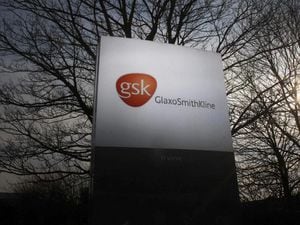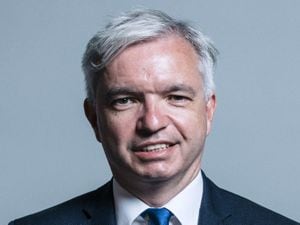Pharma giant GSK to start booking Brexit costs by year-end
GSK’s chief executive said Brexit will not financially impact the business but will involve real costs.

The boss of GlaxoSmithKline has said the pharma giant will start booking costs linked to Brexit contingency plans by year-end but is pressing the Government to give details on a transition deal as soon as possible.
Chief executive Emma Walmsley said the company is already laying the groundwork for Brexit as it waits for news on a potential licensing or mutual recognition deal with the EU that would allow the pharmaceuticals industry to continue serving customers across borders.
“In terms of Brexit and the timing of any transition, it would be good to know as soon as possible, as we have said, but we are moving forward with contingency planning right now,” Ms Walmsley said during a conference call with media.
She assured that Brexit is not expected to have a “material impact” on the group’s finances, but “will involve real cost”.
“We will need to start spending really from the end of the year,” Ms Walmsley explained.
While GSK is not planning on moving operations out of Britain, it is looking at duplicating and building up certain facilities within the EU in hopes of securing its continental business after Brexit.

The pharma giant has “five asks” for the Government, which include ensuring that the UK can participate in the EU regulatory framework, providing frictionless trade, setting up a talent-friendly immigration policy, and predictable funding levels for UK sciences.
But Ms Walmsley said the company was most concerned about the lack of certainty over a transition deal with the EU.
“The most important thing is to get to clarity on an implementation phase for at least two years, potentially longer, but to get clarity on that as soon as possible.
“We then, absolutely, need to make sure that the UK is able to participate in the EU regulatory framework to the fullest extent possible, whether that be for licensing or pharmacovigilance, clinical trials and really to avoid regulatory divergence, if we can, with maximum mutual recognition agreements,“ she told reporters.
The chief executive made the comments after GSK released its third quarter results which showed a 4% rise in sales to £7.8 billion at actual exchange rates.
When stripped of currency effects, revenues grew 2%.
Sales were boosted in part by its pharmaceuticals operations, which saw revenues rise 2% at constant currencies, on the back of strong growth of new respiratory and HIV treatments.
Its consumer healthcare division also clocked a 2% jump in sales, thanks to progress in its pain and oral health products, through its vaccines business fell flat amid higher competition for the likes of its diphtheria and tetanus vaccines.
GSK was still able to report a 30% jump in pre-tax profits at constant exchange rates to £1.7 billion, as the company continued with its cost-cutting drive.
Ms Walmsley said: “Performance in the quarter showed continued progress with sales growth and improved operating margins.
“This was driven by targeted cost savings and restructuring and integration benefits, which particularly benefited Vaccines and Consumer Healthcare, and also supported investment in our new products and R&D pipeline.”
Earlier this summer, GSK announced it was offloading more than 130 of its non-core brands, just a week after revealing plans to slash 320 permanent jobs at the company over the next four years.
It was one of the first major moves under Ms Walmsley and is meant to help deliver an additional £1 billion in annual cost savings by 2020.
She said the company is still “on course” to reach full-year earnings guidance, “with cash generation continuing to improve”.





